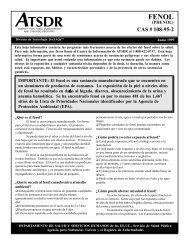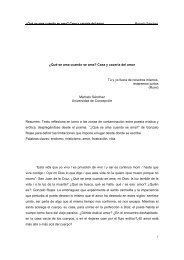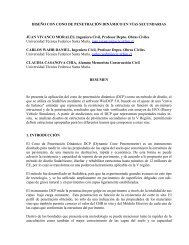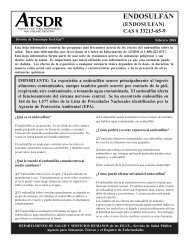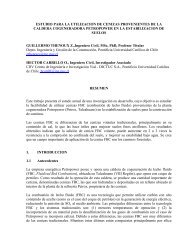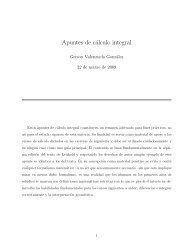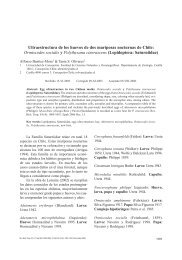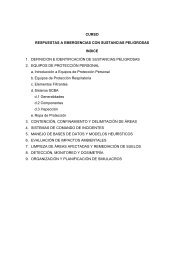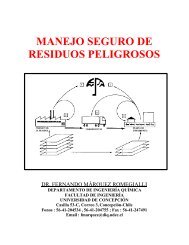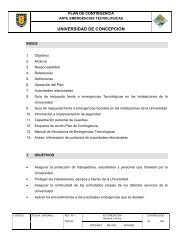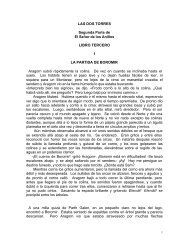Beer : Health and Nutrition
Beer : Health and Nutrition
Beer : Health and Nutrition
You also want an ePaper? Increase the reach of your titles
YUMPU automatically turns print PDFs into web optimized ePapers that Google loves.
104 Chapter Five<br />
fuel by the liver (Mitchell & Herlong 1986). Gibney et al. (1989) suggest that there<br />
is an inverse relationship between energy derived from alcohol <strong>and</strong> that from dietary<br />
fat. On the other h<strong>and</strong>, Le March<strong>and</strong> et al. (1989) claim that abstainers consume more<br />
vitamins, calcium, fruit <strong>and</strong> raw vegetables, while drinkers took in more fat (especially<br />
polyunsaturates), meat, pickled vegetables <strong>and</strong> dried sh. It appears as if alcohol is<br />
causing a higher metabolic rate (Klesges et al. 1994; Orozco & de Castro 1994) perhaps<br />
with an increased burning up of fats (Suter et al. 1992). Rumpler (1994) from the<br />
USDA Human <strong>Nutrition</strong> Research Center claimed that consuming moderate amounts<br />
of alcohol did not cause weight gain or an excess of body fat. He suggested that alcohol<br />
may help the body to regulate appetite.<br />
People who consume alcohol but who are not alcoholics appear to add the energy from<br />
alcohol to their normal energy intake rather than replace food with alcohol (Jones et al.<br />
1982). That this increased energy intake does not necessarily translate into body mass<br />
may be because alcohol stimulates the basic metabolic rate (MacDonald et al. 1993).<br />
So it does not appear that additional calories from alcohol are compensated for by a<br />
reduction in calorie intake from other foods (Westerterp-Plantenga & Verwegen 1999).<br />
In contrast, pre-dinner drinks in which carbohydrate, protein or fat was the prime energy<br />
source led to a reduction in the amount of food eaten during the meal. Richter (1926)<br />
<strong>and</strong> Eriksson (1969), however, presented evidence to suggest that voluntary alcohol<br />
intake depresses food consumption in proportion to its energy content. Fors<strong>and</strong>er (1988)<br />
showed that ethanol suppresses the consumption of carbohydrate but not fat or protein.<br />
There have been various reports that a high carbohydrate/low protein food depresses<br />
voluntary alcohol intake, while a low carbohydrate/high protein diet increase it (Hauser<br />
& Iber 1989). C<strong>and</strong>y is recommended to those with a predilection to consume alcohol<br />
to excess (Biery et al. 1991). Istvan et al. (1995) says that those who drink regularly,<br />
but each time in relatively small amounts, have lower body weights than those who<br />
drink a lot at once or don’t drink at all.<br />
Direct studies in which alcohol was ‘control fed’ to humans showed that, under normal<br />
living conditions, moderate alcohol consumption (e.g. 60–75 g alcohol per day, which is<br />
equivalent to approximately 2 litres of average strength beer daily) had no measurable<br />
impact on energy balance <strong>and</strong> body weight over a period of approximately one month<br />
(MacDonald et al. 1993).<br />
Another index of body mass (perhaps of most interest to women) is waist : hip ratio<br />
(WHR). Just as for BMI, it has variously been concluded that alcohol lowers (Kaye et<br />
al. 1990), raises (Lapidus et al. 1989) or has no effect (Haffner et al. 1986) on WHR.<br />
In a recent investigation, Buemann et al. (2002) measured the amount of food consumed<br />
by subjects given beer, wine or a carbonated soft drink with the meal. When<br />
people were given a designated quantity of each drink there was no signi cant difference<br />
between any of the beverages in respect of impact on the amount of food consumed.<br />
However, when they were given less of the drink <strong>and</strong> allowed to consume the whole



